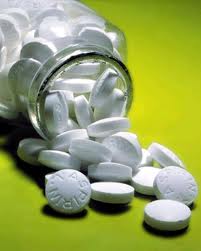 Aspirin therapy to prevent heart attack may have different benefits and harms in men and women.
Aspirin therapy to prevent heart attack may have different benefits and harms in men and women.
Cardiovascular disease (CVD) is the leading cause of death in the U.S., contributing to approximately 58% of deaths. The epidemiology of CVD events is different for men and women. Men have a higher risk for coronary heart disease and tend to have these events at a younger age than women.
Although incidence rates of stroke are higher among men than women, more women die of stroke than men because of their longer life expectancy.
Back in 2002, the US Preventive Services Task Force (USPSTF) strongly recommended that clinicians discuss aspirin with adults who are at increased risk for coronary heart disease. This preventive measure was based on 5 randomized controlled trials that showed a 28% reduction in myocardial infarctions (heart attack) with aspirin use. Only 2 of 5 studies included women! At that time it was not clear if the earlier recommendation base on mainly male dominated studies was valid for women. In 2005, the large Women's Health Initiative (WHI) provided some new data about the benefits of aspirin in women but confusion continued.
In March 2009, the U.S. Preventive Services Task Force reviewed new evidence from NIH's Women's Health Study and other recent research and found good evidence that aspirin decreases first heart attacks in men and first strokes in women. The Task Force has issued a recommendation that women between the ages of 55 and 70 should use aspirin to reduce their risk for ischemic stroke (lack of blood and oxygen due to a clot or other disease process) when the benefits outweigh the harms for potential gastrointestinal bleeding.
In summary, as of March 2009, the USPSTF recommends:
- The use of aspirin for men age 45-79 years when the potential benefit due to reduction in myocardial infarctions outweigh the potential harm due to an in increase in GI bleeding.
- The use of aspirin for women age 55-79 when the potential benefit of a reduction in ischemic strokes outweighs the potential harm of an increase in GI bleeding.
- The current evidence is insufficient to assess the balance of benefits and harms of aspirin for cardiovascular disease prevention in men and women 80 years or older.
- Against the use of aspirin for stroke prevention in women younger than 55 years and for myocardial infarction prevention in men younger than 45 years.
The new report does conclude that aspirin increases the risk for major bleeding events, primarily GI bleeding in both men and women. There is also limited evidence that hemorrhagic strokes are significantly increased among men but not women.
As with other studies we have cited on this blog, recommendations are always subject to change as new research is completed. It is wise to discuss your individual concerns with your physician because other health factors could influence your decisions. The entire discussion above also reinforces the need for ALL research to look at sex and gender differences even in the most basic trials so that when we want to apply findings to humans, we already know if there are sex differences --- as we are finding out about aspirin therapy.
The recommendation and other materials are available at  U.S. Preventive Services Task Force, Ann Intern Med 150(6):396-404, 2009 (AHRQ supports the Task Force). See also Optowsky, McWilliams, and Cannon, J Gen Intern Med 22:55-61, 2007 (AHRQ grant T32 HS00020).
U.S. Preventive Services Task Force, Ann Intern Med 150(6):396-404, 2009 (AHRQ supports the Task Force). See also Optowsky, McWilliams, and Cannon, J Gen Intern Med 22:55-61, 2007 (AHRQ grant T32 HS00020).
 For years we criticized heart researchers for not including women in the early studies that recommended aspirin to prevent heart disease. We asked: How can you recommend aspirin in women when all the studies took place in males! In 2007, after additional studies that included females, the American Heart Association released guidelines for the CVD preventive care in women including aspirin. Their recommendations:
For years we criticized heart researchers for not including women in the early studies that recommended aspirin to prevent heart disease. We asked: How can you recommend aspirin in women when all the studies took place in males! In 2007, after additional studies that included females, the American Heart Association released guidelines for the CVD preventive care in women including aspirin. Their recommendations:
 Heart disease is the leading cause of death among women, and evidence-based national guidelines promote the use of daily aspirin for women at increased risk for cardiovascular disease. However, less than half of the women who could benefit from aspirin are taking it, according to an article available free online at the
Heart disease is the leading cause of death among women, and evidence-based national guidelines promote the use of daily aspirin for women at increased risk for cardiovascular disease. However, less than half of the women who could benefit from aspirin are taking it, according to an article available free online at the  Aspirin therapy to prevent heart attack may have different benefits and harms in men and women.
Aspirin therapy to prevent heart attack may have different benefits and harms in men and women. U.S. Preventive Services Task Force, Ann Intern Med 150(6):396-404, 2009 (AHRQ supports the Task Force). See also Optowsky, McWilliams, and Cannon, J Gen Intern Med 22:55-61, 2007 (AHRQ grant T32 HS00020).
U.S. Preventive Services Task Force, Ann Intern Med 150(6):396-404, 2009 (AHRQ supports the Task Force). See also Optowsky, McWilliams, and Cannon, J Gen Intern Med 22:55-61, 2007 (AHRQ grant T32 HS00020).